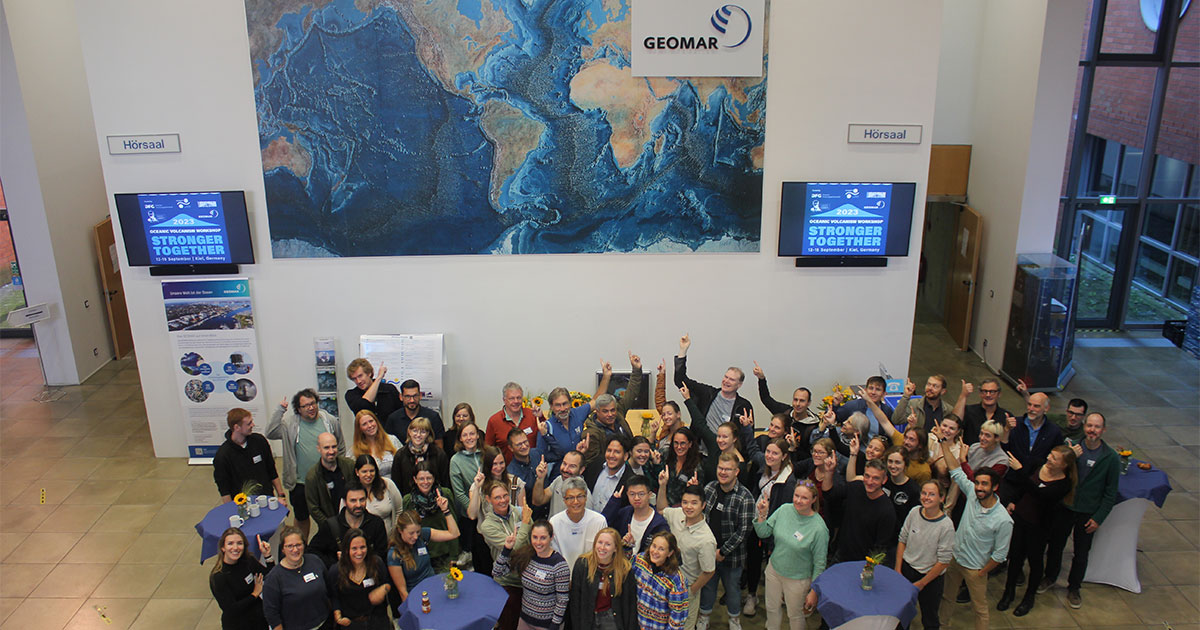Submarine volcanoes are widespread worldwide, but due to their location they are still less researched than their equivalent on land. With the aim of linking international expertise in the field of oceanic volcanism, international experts met for the first time for a three-day workshop at GEOMAR Helmholtz Centre for Ocean Research Kiel. In addition to the exchange of current research results, the focus was on the discussion of possible new cooperation.
Scientists around the globe are researching how volcanoes in and around the ocean affect our lives. Events such as the eruption of the Tonga submarine volcano in the South Pacific in January 2022 are also raising public awareness of the issue. With the aim of bringing the international community together, the Commission on Submarine Volcanism (CosV) of the International Association of Volcanology and Chemistry of the Earth's Interior (IAVCEI) and GEOMAR Helmholtz Centre for Ocean Research Kiel organized a three-day workshop under the motto "Stronger together."
On site in Kiel, 85 scientists took part in the program. In addition, about 20 interested people joined online. In presentations, the participants reported on their projects and results, initiatives, expeditions, and research trips in the field of oceanic volcanism. Among other things, the researchers shed light on the hazards and benefits of underwater volcanoes and the special features of volcanic islands. In discussion formats, they critically examined the current relevance of their research area. The representatives of GEOMAR presented the institute's own innovations in the field of marine technology and offered them for joint projects.
The organizers were particularly pleased about the diversity of the participants: "From students to PHDs to professors, every career level is represented," explained Dr Julie Belo, organizer of the event and research associate in the research division "Dynamics of the Ocean Floor" at GEOMAR. "Participants from 19 nations from six continents are taking part," she emphasized.
In addition to the international exchange, another focus was on discussing possible new collaborations and the funding of research projects. "Research is very cost-intensive," said Dr Tom Kwasnitschka, organizer at GEOMAR and Secretary General of the Commission on Submarine Volcanism. "That is why we want to forge alliances and discuss possibilities to apply for funding together," Kwasnitschka explained further. The participants considered models for individual cooperation as well as for applying for joint large-scale projects.
For the organizers, the workshop was a success. "There is a lot to do, let's get started," said Dr Tom Kwasnitschka, looking to the future. "Scientifically and economically, it makes sense to work together in many places. We have received great encouragement from the international research community for the innovative methodological approaches at GEOMAR."



